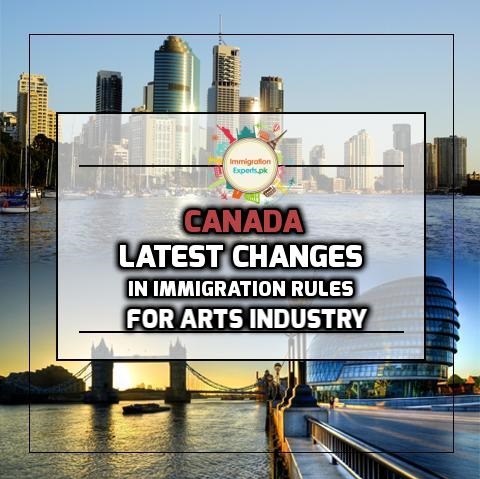051 8439995, 042 35911332

According to a recent announcement released by the Government of Canada, foreign nationals who are working in the performing arts industry will now receive Labour Market Impact Assessment (LMIA) exempt work permits. This amendment and introduction of a new list of occupations in this specific industry will simplify the procedure to seek Canadian immigration for such foreign artists.
The eligible occupations for an LMIA-exempt work permit are as under:
- Opera
- Live theatre
- Dance (such as ballet or contemporary)
- Orchestra
The Canadian government considers it as an advantageous opportunity for the country to hire foreign nationals working in the performing arts industry. In fact, it will turn out to be beneficial for the Canadians as well as the foreign artists.
The Government of Canada is planning to release $194.1 million between 2018 and 2019 in accordance with its Budget 2018 plan. This will enhance capacity of International Mobility Program and Temporary Foreign Worker Program. These two are the most essential temporary foreign worker programs offered by Canada.
{Read more about: BC Sends Invitations to Graduates and Tech Workers Through its Latest Draw}
Eligibility Requirements
Prior to the submission of a work permit application, the employer should file an Offer of Employment via Employer Portal. The whole procedure works on the basis of a reciprocal agreement, which allows foreign nationals to work in Canada if the Canadians or permanent residents can avail identical work opportunities in their countries.
The applicant must provide following documents to show the reciprocal work opportunities:
- An offer of employment by the employer, which clearly reveals that:
- The job duties of an applicant are in the live theatre, opera, dance or orchestra discipline of the performing arts
- The employer currently receives composite or core funding from the ‘Canada Council for the Arts’ or seeks financial support through parliamentary appropriation i.e ‘National Arts Centre’
- Evidence in shape of a letter or other proof submitted by the applicant, which is issued by a recognized Canadian performing arts organization or representative. The documents must show that reciprocal international opportunities are available for the Canadians in any of the particular fields of performing arts discipline:
- Actors in theatrical productions
- Contemporary dancers
- Orchestral musicians
- Ballet choreographers
- Opera singers
The reciprocity letter must cover following details:
- The discipline including live theatre, dance, opera or orchestra and kind of work i.e choreographer or dancer must affirm reciprocity
- A senior representative must sign the letter on behalf of the organization and mention the date
- The organization must provide the mandate or eligibility criteria of its membership
- An affirming statement, which suggests that the reciprocity existed even in the previous past year
- The letter must show the ability of an organization to confirm reciprocity


